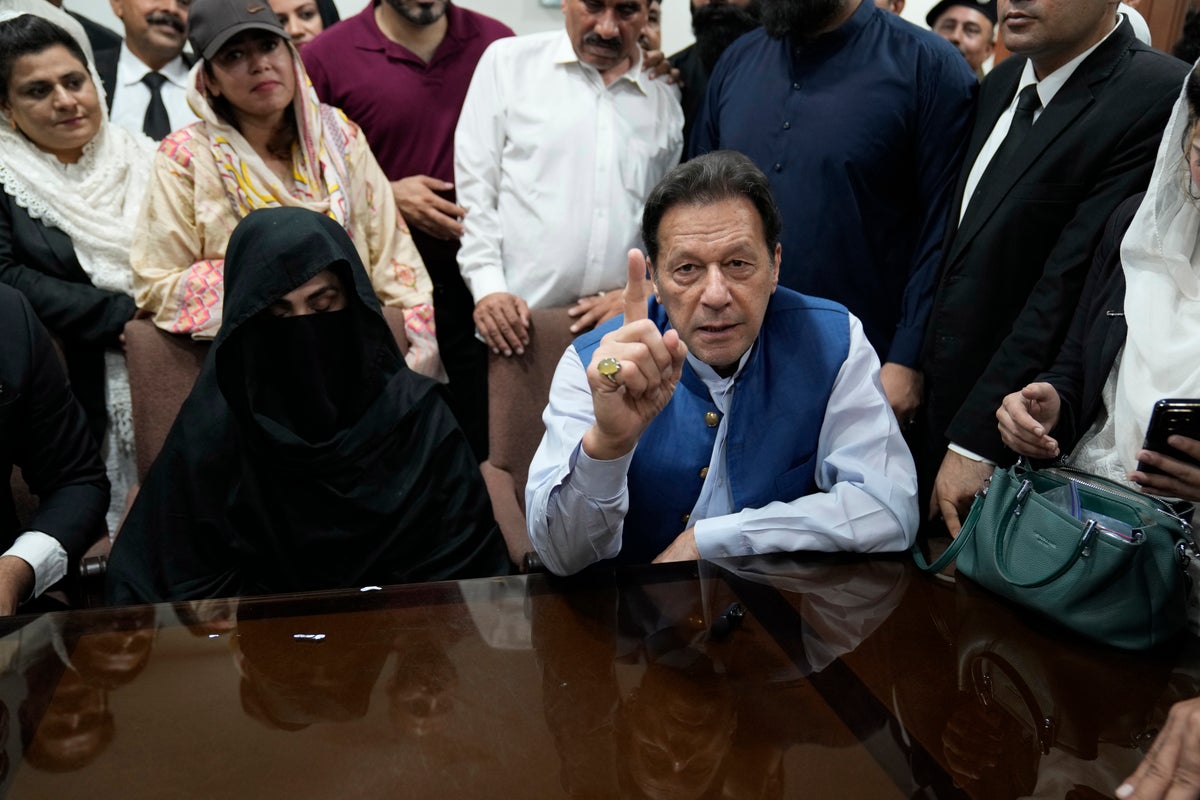
In a major blow to Pakistan’s former prime minister and top opposition leader Imran Khan, dozens of his followers quit his party on Monday to launch their own ahead of parliamentary elections expected later this year.
The dramatic development — described as a “political rebellion” within Khan's Pakistan Tehreek-e-Insaf party — came two months after violent protests shook the country in early May. Khan's followers, angered over his arrest in connection with a graft case, rioted for days, attacking public and military installations.
The deadly violence subsided only after Khan was released on an order from Pakistan’s Supreme Court. In the weeks that followed, several top members of Khan's circle abandoned him, disagreeing with his campaign against the administration of his successor, current Prime Minister Shehbaz Sharif.
But in an unprecedented move Monday, 57 of Khan's party members — most of them former lawmakers and other well-known politicians — announced they were quitting the party and forming their own, called Tehreek-e-Insaf Parliamentarians.
They accused Khan of pursuing “politics of hatred and confrontation” in the May violence. Most of the dissenters come from northwestern Pakistan, a former tribal region bordering Afghanistan that had long been a stronghold and support base for Khan, much like the eastern province of Punjab and Khan's hometown of Lahore.
Among the most prominent defectors is Pervez Khattak, who served as the defense minister in Khan's government until the former cricket star turned Islamist politician and prime minister was ousted in a no-confidence in parliament in April 2022.
Khattak told a gathering of former lawmakers and politicians in the northwestern city of Peshawar Monday that they will give Khan a “tough time" in the next elections, likely to take place in October or November.
Khan's party compared the defectors and the new political party to “sprouting weeds” in a field of grass after a the rainy season. Khan was expected to issue a statement later.
Last week, Sharif said he would step down as prime minister next month, after completing his five-year term.
Khan has faced nationwide criticism — both from the administration and many ordinary Pakistanis — following the May violence that also saw offices of Pakistan's powerful intelligence service and air force attacked. The residence of a top regional army commander in Lahore was torched.
Last month, the military fired three senior army officers over failure to prevent violent attacks. Separately, military announced it was trying 102 civilians before army courts over their involvement in the attacks.
At least 10 people were killed in clashes between Khan’s supporters and police. Later, police arrested more than 5,000 in connection with the riots. Most of those detained were later freed on bail.
But the administration has also fought back and Khan has been slapped with more than 150 legal cases, including several on charges of corruption, “terrorism” and inciting people to violence. The former prime minister has been bogged down in He has been granted bail in many cases, but has been forced to appear in court to seek protection from arrest, a common step under Pakistani law.
Khan says he is being politically victimized by Sharif, a charge the government denies. Khan has repeatedly insisted he would return to power if new elections are held in a free and fair manner.
Also Monday, Khan and his wife, Bushra Bibi, appeared in Lahore High Court to sign their bail bonds in another corruption case pending against them. In court, Khan told reporters that efforts are underway by authorities to disqualify him from running for a seat in parliament before Sharif's term as premier ends next month.







